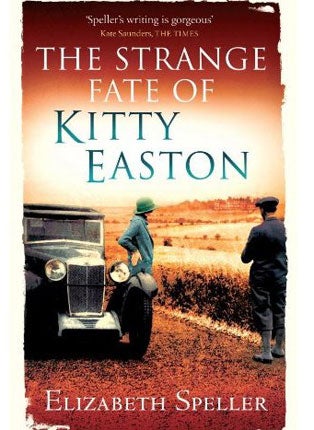The Strange Fate of Kitty Easton, By Elizabeth Speller
A little girl, and the plot, go missing

Although the mystery in the title is the disappearance of a small girl, Elizabeth Speller's novel has no other connection with the Madeleine McCann case.
It doesn't have much to do with little Kitty Easton, either, for the main theme vanishes for much of the book. Speller's work of non-fiction on the travels of the Emperor Hadrian did the same, but there she had to follow in her subject's footsteps.
Here, the narrative loses track of poor Kitty. It is nevertheless an absorbing read, seen through the eyes of Laurence Bartram, called in to give architectural advice at the country house of Easton Deadall. The First World War has just ended, and Bartram, a former army officer, is still jolted by flashbacks to the trenches. He finds a strange household at Easton: his friend William Bolitho, mutilated in the war, and Bolitho's enigmatic in-laws.
Speller is movingly effective at handling some of the terrible aftermaths of that war, especially the sense of guilt among survivors. One dead member of the Easton family was apparently a hero, another is under the suspicion of cowardice. What can the hero's widow, mother of the missing child, reveal about the family past?
Speller throws in various extraneous elements. William is planning a maze, and this seems to lead irrelevantly to the granddaddy of all mazes, created on Crete by Daedalus. The book briefly turns into a Gothic thriller until the maze theme is dropped and we return to the family story, working itself out chiefly through the interrelationships of the folk at the "big house" with the villagers. But we take another leap away from little Kitty's story with a trip to the British Empire Exhibition.
The denouement treats us to the entertaining description of a classy Chelsea brothel, but an equally important stage in the search for the child is skipped lightly over. The central story regularly gets lost in what are obviously the author's favourite bits, drowning under the weight of research.
Yet there is so much to enjoy. The unravelling of Edwardian hypocrisy, the intricate relationships between the classes – these are sensitively handled, together with the creation of interesting characters. An honest reviewer can only hand on Arthur Quiller-Couch's time-honoured advice to the writer: "Kill your darlings".
Join our commenting forum
Join thought-provoking conversations, follow other Independent readers and see their replies
Comments
Bookmark popover
Removed from bookmarks